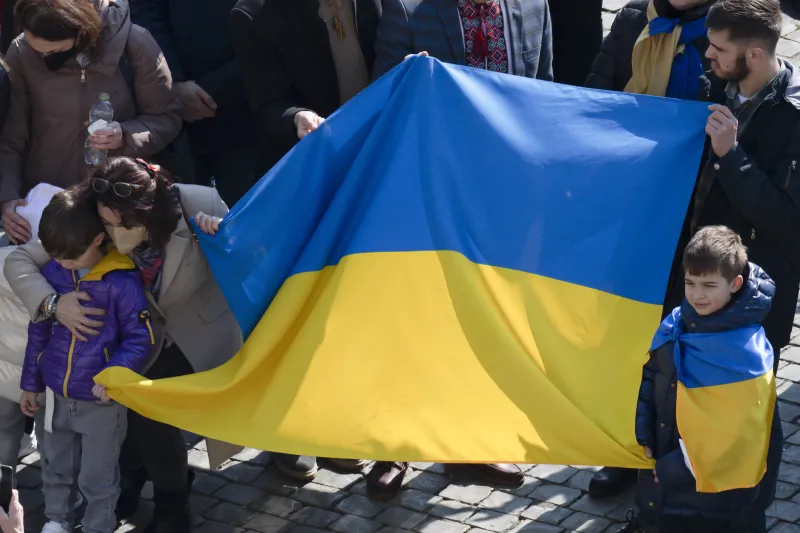
ACI Prensa Staff, Mar 21, 2024 / 17:05 pm (CNA).
The Cuba Decides initiative, founded by Catholic opposition activist Rosa María Payá, is calling on the international community to side with the Cuban people and support the country’s peaceful transition to democracy, a demand made by protesters in July 2021 as well as last weekend.
Payá is the daughter of revered Catholic pro-democracy leader Oswaldo Payá, who was reportedly assassinated by the Castro regime in 2012.
In an email sent to ACI Prensa, CNA’s Spanish-language news partner, the democratic initiative referred to the protests that took place March 18 in cities such as Santiago de Cuba and Bayamo, in which numerous people took to the streets to demand a change in the system due to continuous power outages and food shortages on the island.
“The situation is critical; the regime has plunged the Cuban people into a deep humanitarian crisis marked by hunger [and] systemic failures in practically all public services, from health to transportation and energy,” the organization explained.
Furthermore, “the absolute ineptitude and negligence of the state [as well as] political repression and violence prevail. The regime holds more than 1,000 political prisoners as hostages in what amounts to torture. Opposition leader José Daniel Ferrer has been missing in prison since Nov. 28, 2023,” Cuba Decides stated.
In her email Payá encouraged democratic countries to create “a coalition of nations” that condemn “the illegitimacy of the Cuban regime” and support the people in their effort to regain their sovereignty.
“We, the Cuban people, are prepared to transition to democracy,” she affirmed.
Steps to achieve transition
The Cuba Decides initiative, which brings together Cubans on the island and abroad along with international friends, proposes a four-stage roadmap for the country to transition from the dictatorship established in 1959 to a democratic system.
The first step is to recognize and guarantee the protection of human rights for all Cubans, including freedom of speech, assembly, association, and civil liberties.
The second step is to hold “a binding plebiscite implementing electoral and transparency guarantees so that the people can express themselves and sovereignly decide on the change toward a democratic and multiparty system.”
The third stage, according to Cuba Decides, is to “initiate a transition process that establishes democratic institutions, guarantees the rule of law, and ensures a peaceful and orderly transfer of power.”
This is to be followed by “free and multiparty elections.” Citing Oswaldo Payá, the founder of the Christian Liberation Movement, the text urges people to stand “on the side of the Cuban people, of all Cubans, and this means supporting respect for all their rights, so that our people can make their voices heard through the ballot box.”
In addition to these steps, Cuba Decides calls on the international community, especially the European Union and the Organization of American States, “to impose individual political, financial, and diplomatic sanctions on the leaders of the regime” and all those “involved in serious violations of human rights.”
It is necessary, the organization points out, “to use all available tools to influence those who have the ability to make the necessary decisions to accept the people’s call for a transition toward democracy.”
Cuba Decides is a nonprofit, nonpartisan, and pluralistic organization dedicated to achieving the peaceful change of Cuba’s political system and the rule of law.
According to its website, Cuba Decides consists of “Cubans on the island and around the world along with international friends who together work tirelessly to achieve a peaceful change. The threats made by the regime will not paralyze us. Fear does not dominate us. We fight for a democratic Cuba and we are closer than ever to achieving that goal.”
This story was first published by ACI Prensa, CNA’s Spanish-language news partner. It has been translated and adapted by CNA.
If you value the news and views Catholic World Report provides, please consider donating to support our efforts. Your contribution will help us continue to make CWR available to all readers worldwide for free, without a subscription. Thank you for your generosity!
Click here for more information on donating to CWR. Click here to sign up for our newsletter.






Leave a Reply